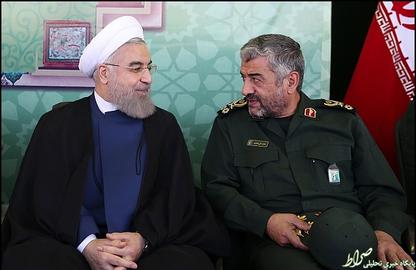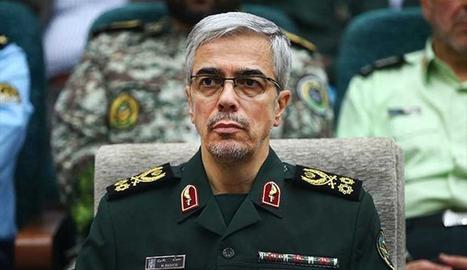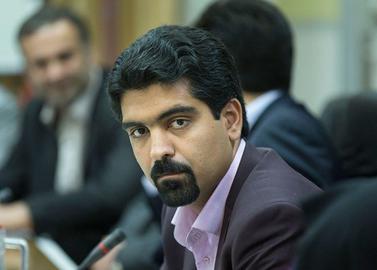Major General Mohammad Bagheri, the Chief of Staff of Iranian Armed Forces, warned on October 30 that if the United States re-imposes nuclear-related sanctions under any pretext, Iran will abandon the nuclear agreement [Persian link]. “It was the decision of the Islamic Republic,” Bagheri said,“to accept limitations on its nuclear program so that nuclear-related sanctions would be removed.”
General Bagheri’s statement is noteworthy for two reasons. Firstly, Bagheri, who is also a member of Iran’s Supreme National Security Council and the Expediency Council, described limitations on Iran’s nuclear program as a “decision of the Islamic Republic” rather than a decision that had been reached by Rouhani’s administration — which is how the country’s hardliners and certain military commanders characterize the move.
But more important was his reference to nuclear-related sanctions, which stood out from comments made by other Iranian officials. On October 8, General Mohammad Ali Jafari, the Revolutionary Guards top commander, told the Guard’s Strategic Council that if the US implemented the Countering America’s Adversaries Through Sanctions Act (CAATSA), Iran would consider it to be “America’s unilateral withdrawal” from the nuclear deal, formally known as the Joint Comprehensive Plan of Action (JCPOA). President Trump signed CAATSA into law on August 2. The act incorporates strategies to “counter aggression by the governments of Iran, the Russian Federation, and North Korea,” including Iran’s missile program, its sponsorship of terrorist groups and its violations of human rights. But although General Bagheri said CAATSA was designed to “drive a wedge between the people and the state,” he did not say that the law would put an end to the JCPOA.
Iran’s Response
The Foreign Ministry reported on the implementation of the JCPOA to the Iranian parliament on October 23 [Persian link]. The report declared that imposing sanctions on the Revolutionary Guards as a whole was a violation of the JCPOA, but added that Iran had responded to these sanctions by passing its own law, “Confronting US Violations of Human Rights and Its Adventurous and Terrorist Action in the Region.” Judging by the report, it would seem that this law, passed by the parliament on August 13, constitutes the extent to which Iran is willing to retaliate against new sanctions. Based on the law, the government must allocate 29 trillion tomans, or more than $8.5 billion, toward the expansion of the country’s missile program and for the expeditionary Qods Force fighting in Syria and Iraq.
This move is important because it clarifies the government’s response to new American sanctions — a response that has been highly controversial within Iran.
On October 21, 2015, in a letter to President Rouhani, Ayatollah Khamenei declared that any new sanctions “at any level and under any pretext — including repeated and made-up excuses about terrorism and human rights — by any country who has been a party to the negotiations would be seen as a violation of JCPOA.” He ordered that, in the case of such an eventuality, the government must stop implementing the nuclear agreement.
Citing this directive, over the last two years Rouhani’s opponents have demanded that Iran stop implementing the nuclear agreement, or abandon it altogether, in response to new sanctions imposed by the US to pressure Iran over matters of terrorism and human rights and its ballistic missile program. But senior government officials have argued that only new or re-imposed nuclear-related sanctions can be considered a violation of the nuclear agreement. General Bagheri’s statements show that Rouhani’s government has enjoyed relative success in selling its view of the nuclear agreement.
The fate of the JCPOA rests with the parliament and Iran’s JCPOA Supervisory Board. For the most part, the majority of members of these two entities agree with the government’s view. Naturally this will make things difficult for those who have advocated scrapping the nuclear deal — mostly close allies of Ayatollah Khamenei.
General Bagheri’s statements also show that if US Congress does not re-impose nuclear-related sanctions in the coming weeks, Rouhani’s administration will continue to have the upper hand.
visit the accountability section
In this section of Iran Wire, you can contact the officials and launch your campaign for various problems


























comments